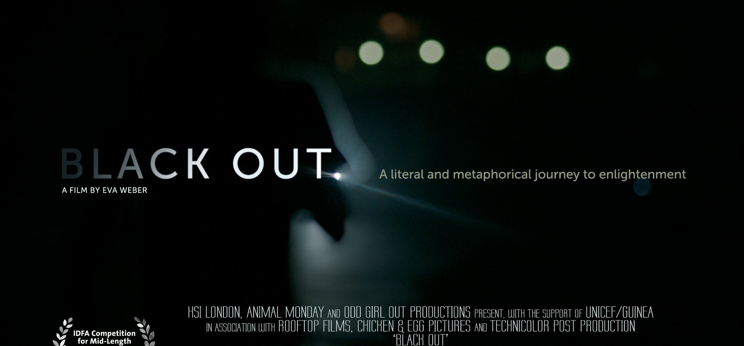Eva Weber’s insightful documentary, “Black Out,” centers on the quest for one of modern society’s most basic resources: light. Set in Conakry, Guinea, during the school exam season, the film follows young students in their earnest pursuit of education. This pursuit is not without challenge as these students are forced to contend with circumstances that are out of their control, namely a lack of light sources.
In Guinea, light is a scarce resource. Government corruption prevents the democratization of electricity. As a result, Guinean citizens are at the will of a fickle and limited electrical system. Here, sunset signals the beginning of a daunting quest. Students migrate from their homes into the city, trekking long distances, in search of light. This journey is a dangerous one, as the threats of rape, robbery, and assault are very real and ever present.
After desperately traversing the dark urban landscape, many students settle in an airport parking lot, while others stay at petrol stations. Congregating under streetlights, students are forced to sit on the pavement or to perch uncomfortably on concrete barriers and metal fences. Crouched over schoolwork, they study intently in the hopes of someday changing the very system that is failing them miserably.
The film also tells the stories of others affected by Guinea’s rampant poverty and political corruption, including that of a local schoolteacher. His honest revelations are both tragic and deeply fascinating. After the conditions in Guinea stifled his academic aspirations, he resorted to teaching. Once seemingly filled with a youthful vigor, he now struggles to hold on to a waning dream.
Unfortunately, his story is not unique. Toward the end of the film, students comment on the limited and inequitable job market. They also reveal their low expectations for political change, having been sorely disappointed in the past. Still, the film is careful to emphasize the cautious hopefulness and tenacity of the Guinean youth.
The documentary is cinematically striking. It is mainly comprised of visual vignettes, each serving its own purpose. Interview commentary plays over the scenes, creating an essential connection between what is said and what is seen. From the spotlight effect on the opening credits to the strategic use of sound, the minor details give the film artistic depth.
“Black Out” is a thoughtfully crafted and highly nuanced film. It takes audiences on an incredibly illuminating journey into a world rarely seen, one in which basic resources are luxuries and personal fortitude is constantly tried. Masterfully constructed, “Black Out” is a cinematic gem and a testament to the power and beauty of independent film.
‘Black Out’ takes viewers on a quest for light
November 25, 2013

